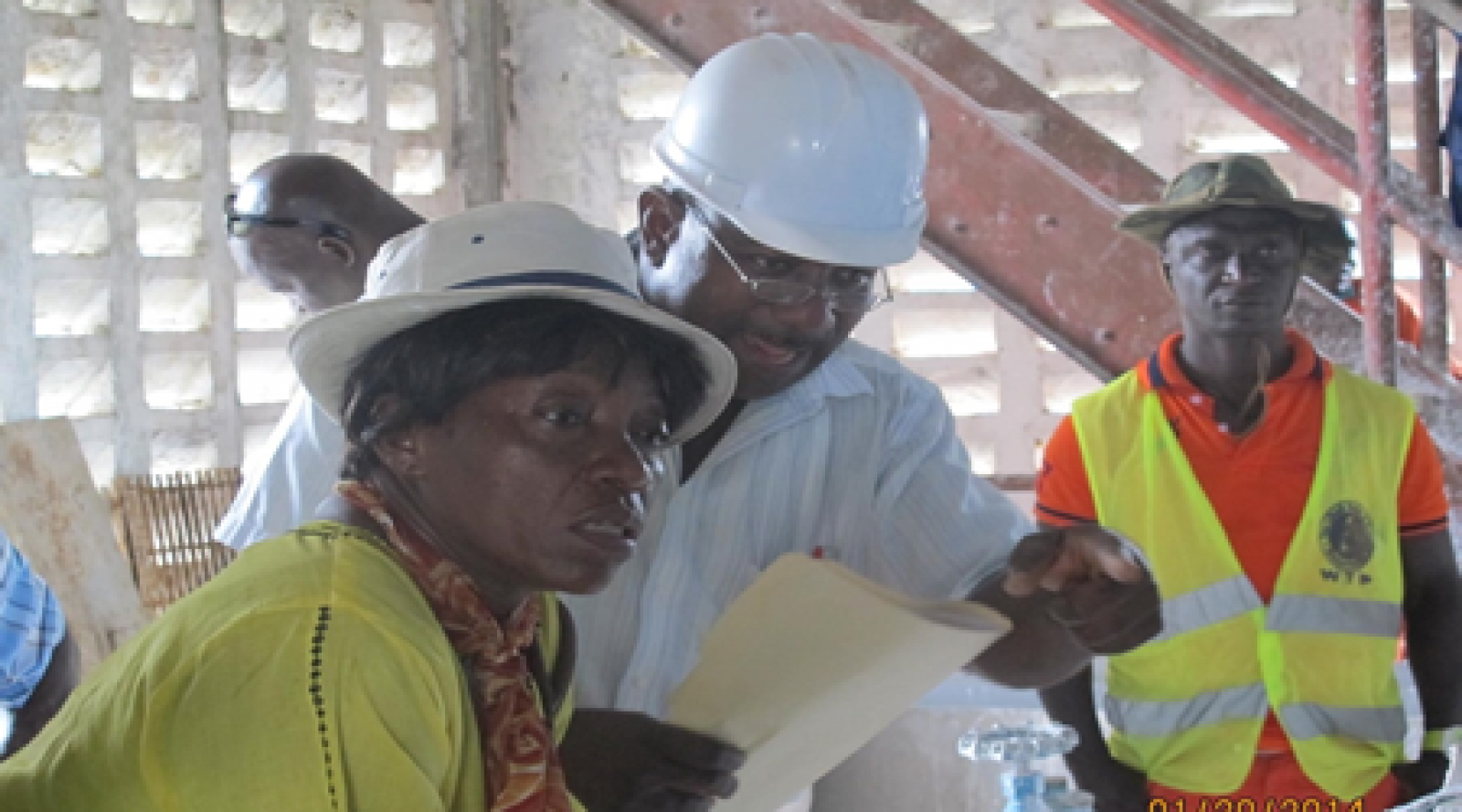
SHARE
Waterborne diseases such as typhoid fever are endemic in Liberia and the country’s infant mortality rate is ranked as one of the highest in the world. A reason is that only 25 percent of Liberia’s four million people have access to safe drinking water, and only 14 percent have human waste collection and disposal services.
Though it has been more than 10 years since the country’s brutal civil war ended, much of the infrastructure that was destroyed has yet to be rebuilt, and citizens have little opportunity to communicate with their elected representatives about these issues.
To show lawmakers the extent of the water and sanitation crisis and to give citizens a chance to share their plight with lawmakers, NDI and its local partner, the Water, Sanitation and Hygiene (WASH) Network, organized an investigative study mission in January. A 17-member delegation of legislators from the Senate and House of Representatives, legislative staff, government officials and journalists visited communities throughout Montserrado County in the western part of the country, including West Point, Clara Town and the White Plains Water Treatment Plant in Johnsonville.
What they saw inspired action from the legislature. In Clara Town, the delegation saw how the community’s approximately 48,000 residents have access to only six public toilets. In West Point, community members complained about sewage pollution in the Mesurado River, which provides most of the area’s drinking water. “We are tired of words and want action,” said one resident.
Joyce Musu Freeman Sumo, Montserrado County’s senior senator, immediately took up the cause, promising to collaborate with the Clara Town commissioner to build more toilets and hand pumps. Sumo also pledged to support citizen initiatives by providing resources and equipment for activities such as community cleanup projects. In a Feb. 3 letter to the Senate, she called for swift legislative action to alleviate the suffering and health hazards caused by lack of water and poor sanitation in these communities. On Feb. 18, she formally introduced the subject in front of the full Senate, encouraging further investigation and public hearings to determine the Senate’s course of action.
WASH used the study mission to outline its advocacy plan, pushing for passage and implementation of an executive order from the president to establish a national commission to regulate water, sanitation and hygiene issues. The group also used the mission to boost public enthusiasm for citizen-driven advocacy.
NDI is supporting the WASH Network as it advocates for an increased government commitment to improve citizen access to clean water and sanitation services. The Institute is also supporting Senator Sumo on strategies to preserve momentum on the WASH policy agenda, including preparing WASH Network members and citizens to testify at public hearings.
The study mission was funded by the Embassy of Sweden in Monrovia.
- Promoting the AU Charter on Democracy, Elections and Governance in West Africa»
- In Liberia, 'Freedom Fone' Connects Lawmakers with Constituents»
- Youth Development Seminar Focuses on Job Creation for Liberia's Youth»
Published March 26, 2014


